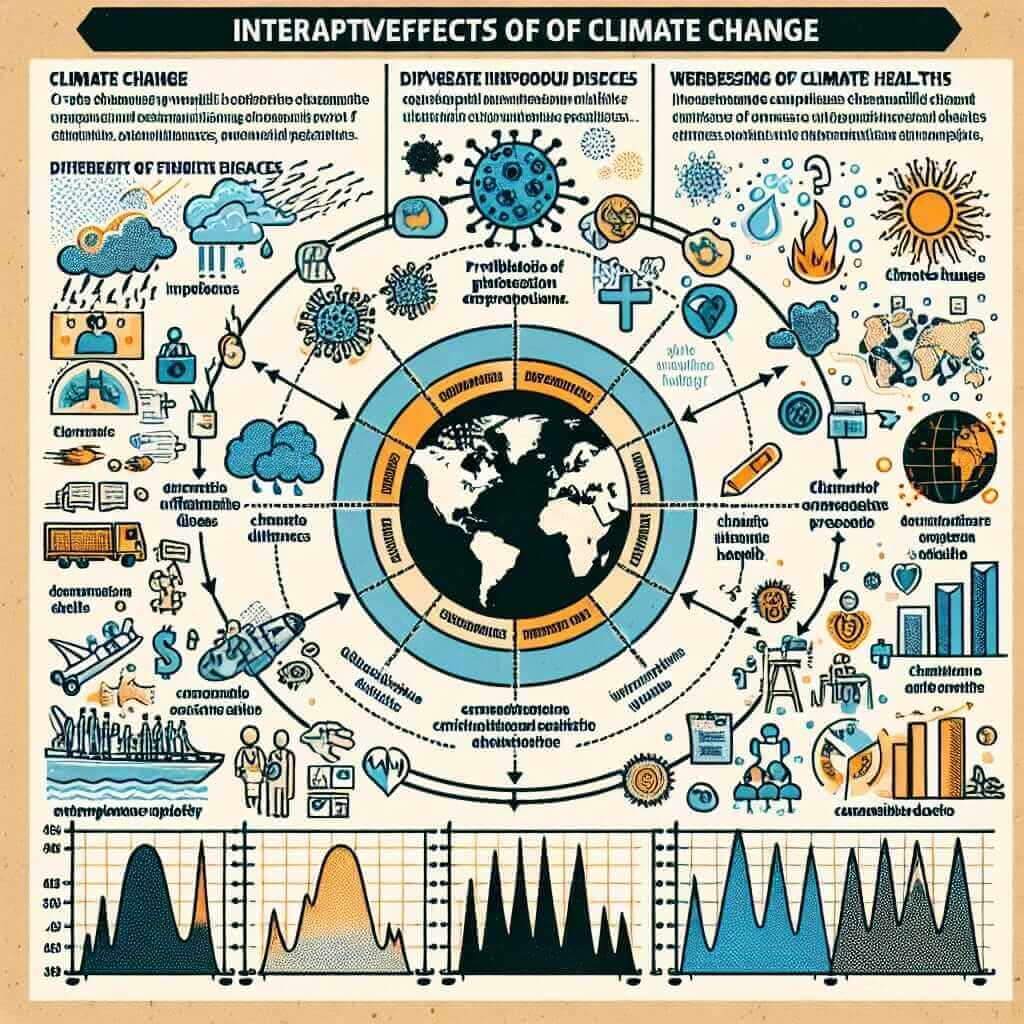Climate change is a critical issue affecting various aspects of our lives. One of the most pressing concerns is its impact on global public health. Understanding this topic is crucial, especially for those preparing for the IELTS Reading exam. In this article, we will delve into the impacts of climate change on global public health, providing a comprehensive reading exercise, questions, answers, and valuable tips for IELTS candidates.
Introduction
The IELTS Reading section is designed to assess a candidate’s ability to read and understand texts. Topics such as climate change and global public health frequently appear in the test due to their relevance and importance. By practicing with these topics, candidates can enhance their understanding and improve their reading skills. This article predicts that the topic “What are the impacts of climate change on global public health?” may be recurrent in future exams due to its growing significance.
Reading Passage
Climate Change and Global Public Health
Climate change is influencing global health in profound and multifaceted ways. As temperatures rise and weather patterns become erratic, several health issues are coming to the forefront. These include the spread of infectious diseases, increased occurrences of extreme weather events, and the exacerbation of chronic conditions.
Spread of Infectious Diseases
Warmer temperatures and changing precipitation patterns are contributing to the proliferation of vector-borne diseases. For instance, mosquitoes that carry malaria and dengue are expanding their habitats to new regions, posing a threat to populations that were previously unexposed.
Extreme Weather Events
The increase in extreme weather events such as hurricanes, floods, and heatwaves is resulting in direct health impacts. These events cause injuries, fatalities, and displacement, and they also disrupt healthcare services, making it difficult for affected populations to receive adequate medical care.
Exacerbation of Chronic Conditions
Climate change exacerbates chronic health conditions like respiratory and cardiovascular diseases. Air pollution, heightened by increased temperatures, aggravates asthma and other respiratory issues. Similarly, extreme heat can trigger heart attacks and strokes, particularly in vulnerable populations such as the elderly.

Questions
Multiple Choice
-
How does climate change contribute to the spread of vector-borne diseases?
- A. By decreasing temperatures
- B. By changing precipitation patterns
- C. By reducing mosquito habitats
- D. By increasing vaccination rates
-
Which of the following does not directly result from extreme weather events?
- A. Injuries
- B. Fatalities
- C. Improved healthcare services
- D. Displacement
True/False/Not Given
-
Mosquitoes carrying malaria and dengue are spreading to new regions due to climate change. (True/False/Not Given)
-
Extreme weather events always improve the quality of healthcare services. (True/False/Not Given)
Sentence Completion
- Air pollution, heightened by increased temperatures, aggravates __ and other respiratory issues.
Answer Keys
Multiple Choice Answers
- B. By changing precipitation patterns
- C. Improved healthcare services
True/False/Not Given Answers
- True
- False
Sentence Completion Answer
- asthma
Common Mistakes
When tackling reading passages on complex topics like climate change, candidates often:
- Misinterpret data and statistical information.
- Lose track of the main idea due to overly technical language.
- Fail to identify the relationship between causes and effects.
Key Vocabulary
Here are some challenging words from the reading passage:
- Proliferation (noun) /prəˌlɪfəˈreɪʃən/: Rapid increase in numbers.
- Erratic (adjective) /ɪˈrætɪk/: Irregular and unpredictable.
- Exacerbate (verb) /ɪɡˈzæsərˌbeɪt/: Make a situation worse.
Grammar Highlight
In this article, we notice the use of complex sentences which incorporate multiple clauses to show cause and effect. For example:
- “As temperatures rise and weather patterns become erratic, several health issues are coming to the forefront.”
Complex Sentence Structure:
- Formula: Main Clause + Subordinate Clause.
- Example: “The increase in extreme weather events such as hurricanes, floods, and heatwaves is resulting in direct health impacts.”
Tips for High Reading Scores
- Skim and Scan: Quickly read through the passage to get a general idea and then scan for specific information to answer questions.
- Expand Vocabulary: Regularly read scientific articles and papers to understand terminology related to climate change and health.
- Practice Regularly: Utilize practice tests to familiarize yourself with various question types and improve your speed and accuracy.
By incorporating these strategies, you can effectively prepare for the IELTS Reading section and improve your chances of achieving a high score. For further reading, you can check out related articles on similar topics such as the effects of climate change on human health and the effects of climate change on global public health.
This structured approach to understanding the impacts of climate change on global public health not only aids in grasping the topic but also provides a practical method to prepare for the IELTS Reading exam effectively.